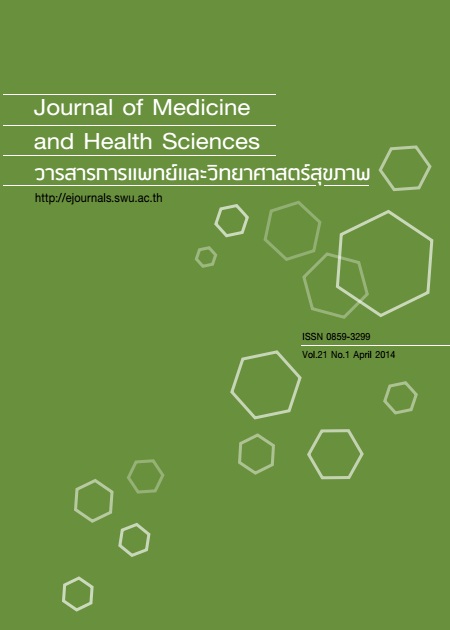Teaching macromolecules and its metabolism sequentially improves learning abilityin biochemistry course of medical students
Keywords:
biochemistry topic sequence, medical students, learning abilityAbstract
Biochemistry for medical student is a subject that focuses on structure and function of macromolecules and their metabolic pathways in living organism. This subject is quite difficult for students to understand because they have to imagine the interactions that occur in the cell at the molecular level. Learning sequence of each topic is exhibited as an important factor that may affect learning ability of students. Therefore, in this study the sequences of topics were evaluated by comparing between the parts of macromolecules either teaching separately or in combination with its metabolism sequentially. The analysis was done using the examination scores of different medical student groups at Srinakharinwirot University that studied different topic sequences. The data analysis revealed that the new topic sequence rearrangement in which each of macromolecules was taught following by its metabolic pathway was significantly better (p < 0.05) than the former sequences. This data demonstrated that the improved topic sequences are important for learning ability which will be useful for teaching development in the future.Downloads
Published
2014-07-29
Issue
Section
Original Article


